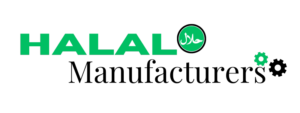How to Find Halal Suppliers — A Complete Guide for Businesses

In today’s global marketplace, the demand for halal-certified products is expanding at record speed. Whether it’s food and beverages, cosmetics, pharmaceuticals, or logistics — businesses now understand that halal is not only a religious guideline but also a powerful symbol of trust, quality, and ethical production.
Consumers around the world increasingly seek products that align with their values, prioritizing integrity, transparency, and sustainability. As a result, halal compliance has become a global benchmark of excellence — and for businesses, finding the right halal-certified supplier is the key to success.
However, sourcing genuine halal suppliers can be challenging. Many companies struggle to identify reliable partners who meet both international production standards and Shariah-compliant halal criteria.
To simplify this process, we’ve prepared a step-by-step guide to help you find trusted halal suppliers for your business.
USE CERTIFIED HALAL DIRECTORIES AND PLATFORMS
The most effective and reliable way to find verified halal suppliers is through official halal directories and global B2B platforms that specialize in certified manufacturers. These platforms ensure all listed businesses meet approved halal standards and offer transparency in sourcing and certification.
Trusted platforms include:
- Halal Manufacturers Platform
- Global Halal Platform (GHP)
- Halal Trade & Marketing Center (Dubai)
- HDC Malaysia Directory
These directories allow you to search by product category, country, or certification body — and directly connect with verified halal producers and exporters. This not only saves valuable time but also gives your business peace of mind knowing you’re working with authentic partners.
CHECK HALAL CERTIFICATION BODIES
A halal logo is only meaningful when it comes from a recognized and trusted certification authority. Always confirm that your potential supplier holds a valid halal certificate issued by an internationally recognized body.
Leading halal authorities include:
- JAKIM (Malaysia)
- MUI (Indonesia)
- HFA (United Kingdom)
- IFANCA (United States)
- SANHA (South Africa)
If you’re sourcing internationally, ensure that the certificate is mutually recognized by your local halal authority. This helps avoid any complications during import or export and guarantees that the products comply with all halal requirements.
ATTEND HALAL TRADE FAIRS AND EXHIBITIONS
Halal expos and trade fairs are among the best ways to connect directly with manufacturers, distributors, and certification bodies. They offer firsthand insights into product quality, packaging, and innovation — all while building valuable relationships in the halal ecosystem.
Some of the most influential halal events worldwide include:
- MIHAS (Malaysia International Halal Showcase)
- Gulfood (Dubai)
- World Halal Summit (Turkey)
- Saudi Halal Expo
Attending these events allows you to evaluate suppliers in person, compare products, and gain exposure to the latest halal industry trends and technologies.
EVALUATE QUALITY, TRACEABILITY, AND ETHICS
True halal compliance extends far beyond certification — it includes ethics, safety, and sustainability. A responsible halal supplier should uphold transparency across the entire supply chain.
Before finalizing any partnership, ask for:
- Ingredient and raw material sourcing details
- Hygiene, production, and quality control reports
- Sustainability and ethical practice documentation
- Supply chain transparency and traceability systems
Choosing suppliers who prioritize ethical sourcing and environmental responsibility strengthens your brand reputation and builds long-term consumer trust.
PARTNER WITH GLOBAL HALAL PLATFORMS
Working with international halal marketplaces can simplify your sourcing process. These platforms bridge the gap between buyers and certified halal manufacturers, ensuring every transaction aligns with recognized halal and quality standards.
The Global Halal Platform, for example, enables companies to:
- Verify halal certifications instantly
- Communicate with suppliers securely
- Compare verified exporters worldwide
- Build reliable, compliant business partnerships
💡You can easily find certified halal suppliers directly on our website as well, making your sourcing journey faster, safer, and more reliable than ever before.
Our platform brings together trusted producers, exporters, and distributors — all committed to quality, transparency, and Shariah compliance.
UNDERSTAND THE IMPORTANCE OF HALAL SUPPLY CHAIN MANAGEMENT
A truly halal business doesn’t end with the product itself — the entire supply chain must also comply with halal principles. This includes transportation, warehousing, and even logistics partners.
When choosing suppliers, ensure that:
- Transportation methods avoid cross-contamination with non-halal products.
- Packaging and labeling comply with halal regulations.
- Storage facilities meet cleanliness and segregation standards.
This ensures that your products remain halal from source to shelf, maintaining authenticity at every step.
BUILD LONG-TERM PARTNERSHIPS BASED ON TRUST
Halal business success is built on mutual trust and collaboration. Once you identify reliable suppliers, focus on maintaining open communication, continuous quality monitoring, and shared values.
Building strong, long-term relationships ensures consistent product quality, cost stability, and faster responses to new market demands — all while upholding your company’s integrity and halal commitment.
CONCLUSION
Finding halal suppliers is not just about checking a certificate — it’s about building partnerships founded on trust, transparency, and ethical excellence.
By choosing verified halal partners, your business ensures compliance while joining a global movement dedicated to integrity, sustainability, and faith-based responsibility.
At Halal Manufacturers, we make this journey easier for you.
Explore a global network of certified halal suppliers today — and start building partnerships that reflect quality, authenticity, and integrity in every product you offer.
